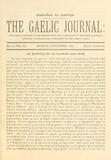|
Prince Charles explains 'pebble theatre'.
|
PEBBLE
|
|
Don Pierson [right] explains how a young Prince Charles made a request to join the Radio London fan club. |
|
|
Prince Charles explains 'pebble theatre'.
|
PEBBLE
|
|
Don Pierson [right] explains how a young Prince Charles made a request to join the Radio London fan club. |
|
Ireland was by no means a united country within the Republic, and neither was the occupation of Northern Ireland the only issue. There were also religious divisions between Catholics and Protestants, and some of those issues tied back to the invasion and conquest of the British Isles by King William and his Dutch Army and the war he waged in what is now Northern Ireland. This was all papered-over as a 'Glorious Revolution', but there was nothing 'glorious' and peaceful about it. The British Crown used the same General Post Office (GPO) to rewrite history that had been used back in 1660 when its new monarchy was created following the defeat of the united republican form of government led by Oliver Cromwell. (See the video at: http://yesterdayneverhappened.com )  But in Ireland the nationalists added a new and distinguishing layer based upon the adoption and promotion of the Gaelic language (Athbheochan na Gaeilge), which was a movement that began in the late nineteenth-century. The promotion of an Irish language was intended to separate the people of the island of Ireland from the people of the island of Great Britain, but it was a movement that was limited in appeal and acceptance. It was from this same line of thought that journalist Michael Joseph Rahilly came to the fore, more after his death, than during his life. He was the person who also called himself 'The O'Rahilly', after a forebear who was a poet that originally invented that term. Michael, and his American wife, gave birth in England to a son named Egan John Eoin O'Sullivan, who called himself Aodogán, and another son named Richard McEllistrim Rahilly who became a barrister at law.
Richard was known as Mac to his friends, but in court he also called himself 'The O'Rahilly', just like his grandfather, and the ancestral poet before them. The roots of Mac were firmly planted in the Gaelic language of his father, and politically he had been on the side of Adolph Hitler. His hope was that Nazi Germany would defeat the United Kingdom of Great Britain and Northern Ireland, and then the Republic of Ireland could be reunited as one nation ruled from Dublin. This is where the roots of Radio Eireann are entwined with one faction who attempted to use a revised Gaelic language to separate the Irish from the English, and it also adversely worked against the the interests of three people who were in their own ways pioneers of European broadcasting. These three also had broadcasting interests in Ireland during the Nineteen Fifties, and their interests came face-to-face with the Gaelic movement, and they lost out to it. These three people are: Charles Orr Stanley, Chairman of the Pye Group of companies and a Protestant Irishman with his own roots in a home near Cork, Eire; Gordon McLendon of Dallas, Texas, whose company was the owner of the mv Mi Amigo, and Charles Michelson, who was the creator of Radio Tangier International; Radio Europe I, and Radio Monte Carlo. Further details about these three men and their involvement with offshore broadcasting, will appear later. Tomorrow we will look at what happened to the facilities at Greenore. Comments are closed.
|
Our team produced this free radio program for PCRL in Birmingham.
It was repeatedly broadcast on and after October 20, 1985. Click & listen! Blog Archive
August 2023
Copyright 2021 with all rights reserved.
|
Index |
Library |
|
